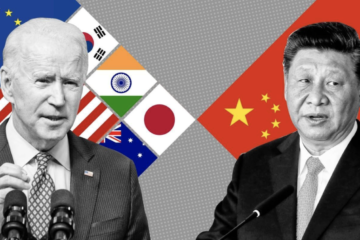In October Hugo Chávez secured his fourth term as President of Venezuela carrying 22 out of 24 states and gaining 55% of the popular vote. This gives him six more years to continue his left-wing agenda suitably referred to as Chavismo. However, with Chávez undergoing further treatment for cancer in Cuba his failing health raises the possibility of new presidential elections in near future. Vice-President Nicolas Maduro has been publically endorsed by Chávez as his successor. This unexpected announcement has led many in the media to begin speculating over the longevity of the Venezuelan Revolution and the future of Chavismo without Chávez.
In 1998 Chávez took office after an unprecedented election victory with a mandate to create a new political system and address the increasing inequality within Venezuela. During his presidency Chávez has established himself as the indispensable figure head of the Left, appearing almost messianic with his grand Bolivarian vision. While many commentators are right in suggesting that no successor could replicate Chávez’s extraordinary charisma, the popularity of Chavismo does not hinge on rallies and speeches. The popularity of the Venezuelan Revolution is not merely a cult of personality.
Support for Chavismo has emerged out of the successful implementation of the United Socialist Party’s (USP) policies. With the nationalisation of Venezuelan oil supplies its profits have been used to create a welfare system which subsidies food for the poor, builds social housing and has greatly expand the quality and access to healthcare and education. Of course these policies are not universally popular but the social programmes and the distribution of wealth pursued by Chávez and the USP is a blessing for many of the poorest Venezuelans. Additionally, the USP’s management of the economy has led to steady growth which has benefited the richest and middle classes as well as the poorest.
The popularity of these reforms has been repeatedly confirmed by a series of successful election victories for Chavez and the USP. Perhaps most significantly, Chavez has appeared to change the political landscape; until the 2012 presidential elections Chavez’s opponents had denounced the welfare system as frivolous use of state expenditure. However, in 2012 Capriles (leader of the centre-right Justice First Party) pledged not to reverse these social programs. This suggests that social justice and mobility is now a core concern of the electorate; perhaps elements of Chavismo have been entrenched in Venezuelan society and will long outlive Chávez.
Furthermore, while Chávez’s victory over Capriles seems marginal to his landslide in 2006, he achieved a decisive 11- point lead which is even more impressive considering he has been in power for 14 years. More recently, the elections for regional governors resulted in the USP winning 20 out of 23 states (gaining two regions), despite Chávez being too unwell to actively campaign. These results suggest that support for Chavismo and the USP is not in decline and that the future of Venezuela’s Revolution is not under threat without Chávez.
There is no doubt that Chavez is a symbolic figure on the world stage, both his charisma and vision have driven the revolution and placed Venezuela on the map. The future of Venezuela will be decided in the next few weeks with growing uncertainties over Chávez’s survival. Even more pressing is the unlikelihood of Chavez being able to be sworn in as president, sparking a heated constitutional debate and calls from the Right for new elections. However, the Venezuelan Revolution can survive post-Chavez, support for Chavismo is still strong and success in new presidential elections is possible providing the USP can unite around Maduro. Even if the opposition win, after 14 years Chávez’s social and economic reforms have transformed Venezuela’s society and political system and they will not revert to its pre-revolution days. Core aspects of Chavismo are embedded in Venezuela and will continue for the foreseeable future.
By: Gray Sergeant


